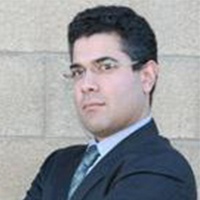Naturita Misdemeanor Lawyer, Colorado
Not enough matches for Naturita Misdemeanor lawyer.
Below are all Naturita lawyers.
Brandon U. Luna
✓ VERIFIEDCriminal, Divorce & Family Law, Estate, Traffic, Juvenile Law
At LunaLaw, LLC, we focus all of our resources on providing exceptional client service in the full range of criminal defense and family law matters. N... (more)
Robert T. Zentner
Government, Criminal, Adoption, Business & Trade
Status: In Good Standing Licensed: 24 Years
Michael Vaughn
Bankruptcy, Family Law, Estate, Real Estate, Criminal
Status: In Good Standing Licensed: 26 Years
James Edward Siegesmund
Divorce & Family Law, Criminal, Estate, Traffic
Status: In Good Standing Licensed: 19 Years


